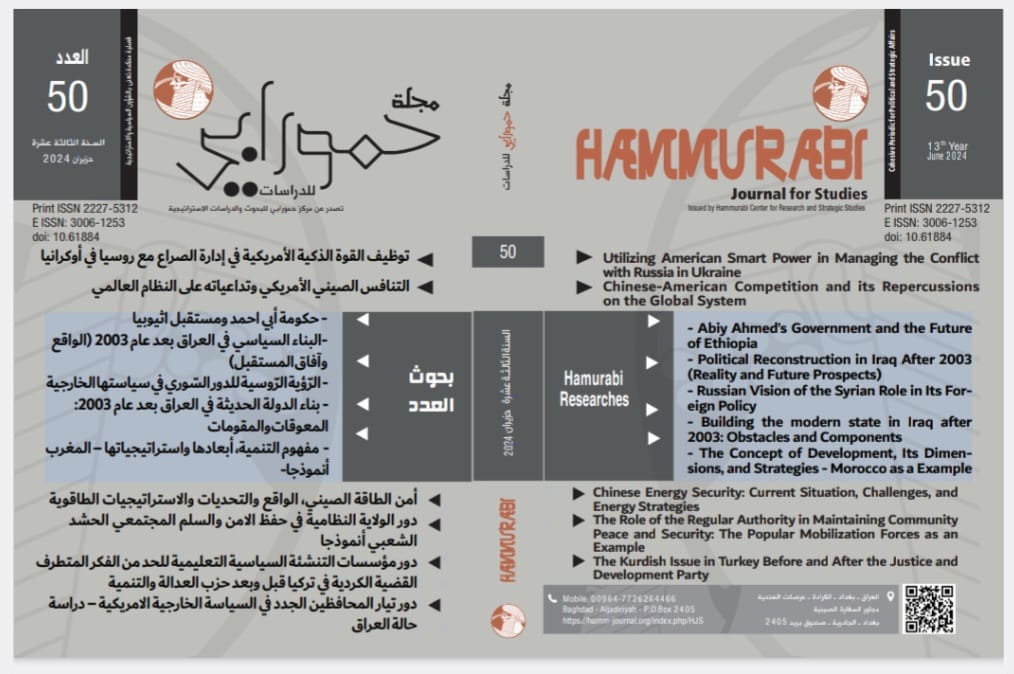Political Change and the Iraqi National Identity - A Study of Constitutional Orientations Before and After 2003 A.D.-
DOI:
https://doi.org/10.61884/hjs.v13i50.485Abstract
The concept of national identity is a controversial political-social concept because it represents a sophisticated awareness of subordinate affiliation, coupled with the emergence of the State. It expresses the broader common affiliation, which belongs to geography, history, ties, communications, and common interests.
As far as the State of Iraq is concerned, what has happened since its founding in 1921 is the building of its modern state before the establishment of its national identity, and subdivision has remained prevalent rather than total national affiliation. The controversy arising from the failure to crystallize or adopt an Iraqi national identity and its non-reflection in Iraqi constitutions from the 1925 Basic Law to the 2005 Permanent and Effective Iraqi Constitution is due to the main variables: ideological change, elitist change, and historical change.












